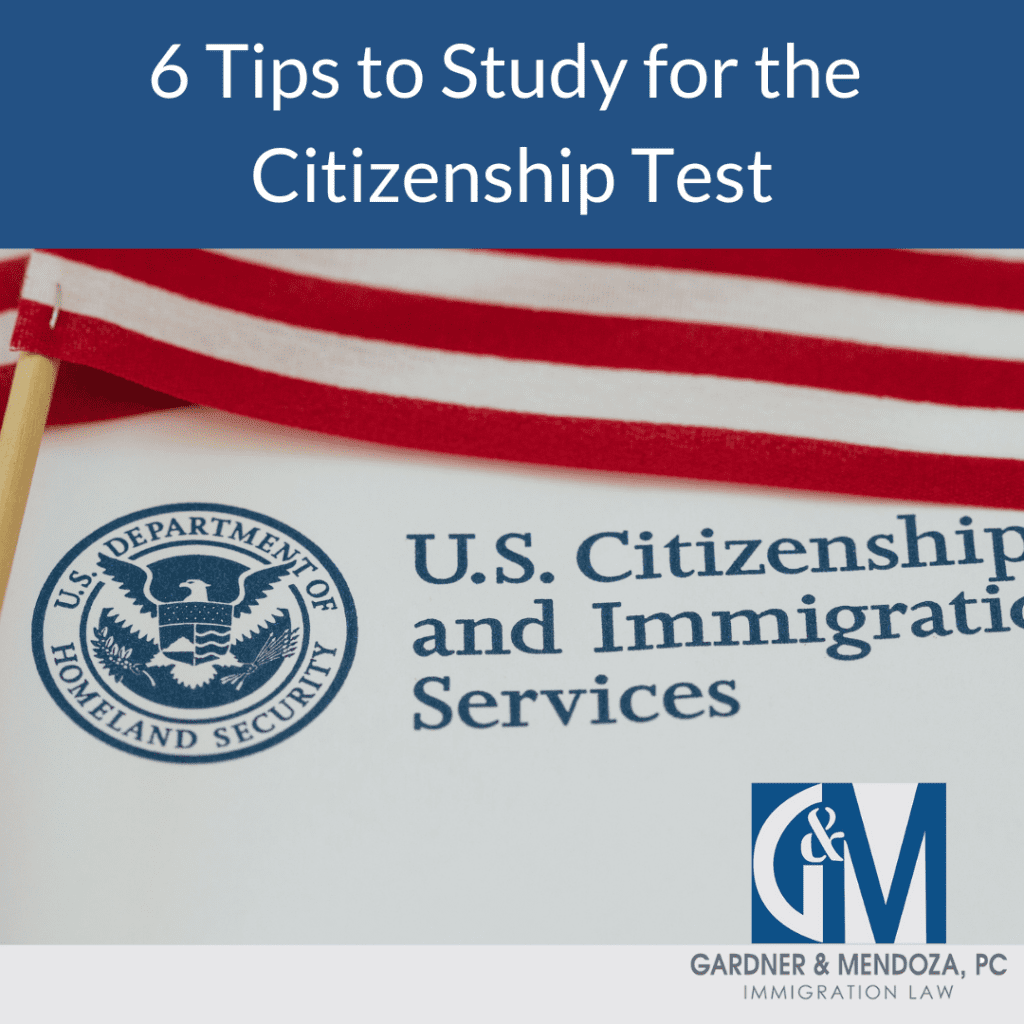Applying for U.S. citizenship is an exciting but complicated process. Every step must be meticulously completed. All applicants must pass an English and civics test to become a citizen. Although this may seem like a straightforward part of the procedure, some applicants fail to study sufficiently before the test and leave the interview room disappointed.

United States Citizenship and Immigration Services (USCIS) provides free resources to help applicants study for the test. You should also talk to an experienced citizenship lawyer if you have any questions about the test.
What is the U.S. Citizenship Test?
The U.S. citizenship test comprises two separate examinations; the English and the civics portions.
Native English speakers don’t usually experience issues with the English part but it can be daunting for those who grew up speaking a different language.
Your ability to speak and understand English is determined by a USCIS officer during your eligibility interview on Form N-400, Application for Naturalization.
For the reading portion of the test, you must read aloud one of three sentences correctly to demonstrate an ability to read in English. You must write one out of three sentences correctly to demonstrate your ability to write in English.
The civics part of the naturalization exam is an oral test. The USCIS officer asks 10 questions from the list of 100 civics test questions. You must answer six questions correctly to pass the civics test. More details including how to obtain exemptions from one or both tests can be found on the USCIS website.
Some candidates find the idea of this interview to be daunting. Our tips can help you face your big day with confidence.
Tips to Study for the Citizenship Test
1. Use the Official Resources
It sounds obvious, but some candidates fail to realize that USCIS now has a wealth of study resources. While official help two decades ago comprised a book, there is now a series of online study guides. These include A Guide to the Monuments and Memorials on the National Mall and 100 Civics Questions and Answers. This guide is available in different languages including Chinese, Spanish, and Arabic. USCIS also provides a large-print version.
2. Take Practice Tests
Don’t just read the questions. Get a family member or a friend to give you practice questions. Identify your areas of weakness and return to them. You must have lived in the United States for at least three years to apply for citizenship so you should have gained some residual knowledge of U.S. affairs to help you.
3. Take Classes
A history class at night school or an online class may help prepare you for the civics class. Immigigrants who do not speak English in their native tongue often spend time with others from their community. They may not pick up sufficient spoken or written English in time to take the test.
Consider signing up for English classes at night school or online. Often places such as local libraries host these classes or will be able to help you out. Become as proficient in English as you possibly can before the test. Study vocabulary flashcards and get a friend or a family member to help you.
4. Consume News
U.S. politics dominates national news. Taking an interest can help you find out how the branches of government work in the United States and make you more curious. Aim to watch news and current affairs programs. Listen to shows on National Public Radio (NPR) and read high-quality, in-depth newspapers such as The Washington Post and The New York Times.
5. Break Down the Test
Breaking down the test into sections will stop you from becoming overwhelmed. The civics test can be split into five subjects: government, history, geography, symbols, and holidays. Take each of them as a separate subject and don’t mix them together. If you are also studying for the English portion, devote a different day or time to studying this part. However, working on translating a civics study guide in another language to English may be beneficial for both parts of the test.
What are the Pass Rates for the Naturalization Test?
The pass rates for the naturalization tests are high. According to USCIS, 95.7% of all applicants pass. You are given a second chance if you fail one or both sections. However, you should aim to pass on the first attempt to minimize stress and costs. Talk to our immigration attorneys about the citizenship process at (757) 464-9224, or contact us.